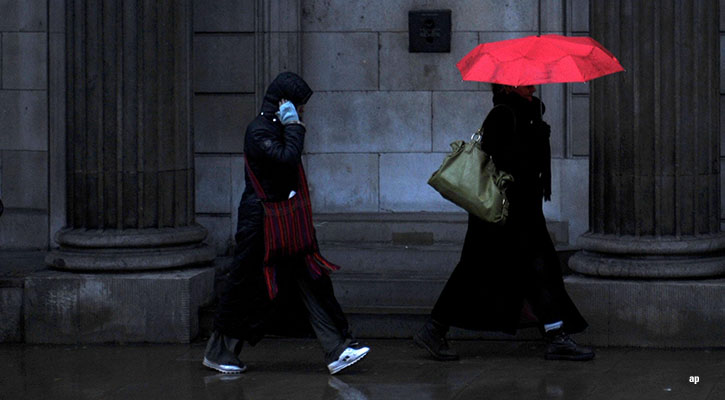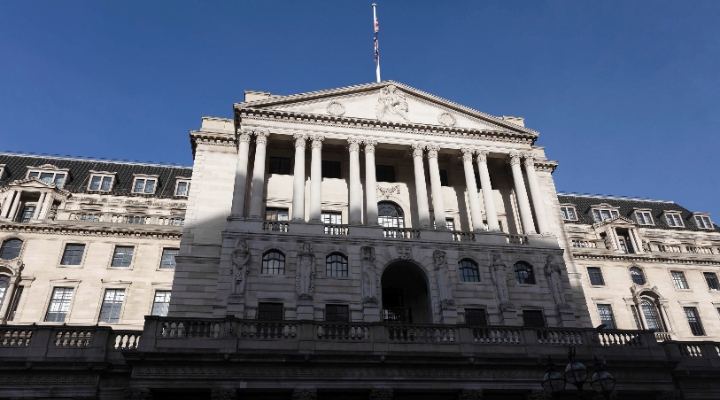
The UK economy entered recession in the final quarter of last year, according to data from the Office for National Statistics on Thursday.
UK gross domestic product slumped 0.3% in the three months to December from a quarter earlier, underperforming the expected 0.1% fall, according to consensus cited by FXStreet. The UK economy had declined 0.1% quarter-on-quarter in the third quarter of 2023.
It means the UK has entered a technical recession, which is generally defined as two successive quarterly falls in gross domestic product.
"While the economy has now decreased for two consecutive quarters, across 2023, GDP is estimated to have increased by 0.1% compared with 2022," the ONS added.
Still, prime minister Rishi Sunak addressed business leaders to insist that the British economy had turned a corner, making the case for optimism ahead of this year's expected General Election.
Inflation Still at 4%
Wednesday's inflation data showed that the Consumer Price Index (CPI) rose 4% in January, below forecasts but double the Bank of England's target of 2%. And data the day before showed a fall in the jobless rate but another rise in wage growth. These competing pressures create dilemmas for the Bank of England, but the MPC's next rate decision is not until late March.
The ONS announced monthly data for December, as well as downward revisions to readings from November and October.
In December, GDP declined 0.1% monthly, a better-than-expected outcome than the 0.2% fall that was predicted, according to FXStreet. However, the damage also came from revisions to previous monthly data.
UK Services Output Falls
The UK economy grew 0.2% in November, downwardly revised from an initially reported 0.3% climb. GDP slumped 0.5% in October, the outcome lower than the previously reported 0.3% decline.
"Services output fell by 0.1% in December 2023, and in the three months to December 2023 services output fell by 0.2%," the ONS said.
"Production output grew by 0.6% in December 2023, but in the three months to December 2023 production output fell by 1.0%."
The industrial production growth for December topped the consensus which had pencilled in a 0.1% decline from a month earlier. Output had risen 0.5% in November.
Across Europe, many countries are either in recession (Germany, Sweden) or battling to avoid it (Italy).




























